The Project Management Guide: Sourcing Trades
Television producers love a cowboy builder. All the ingredients are there for reality TV magic. Picture the tearful victims, explaining how they’d been hoodwinked by an unscrupulous charlatan posing as a reputable builder: “We gave him £50,000 to do our extension, but he took the money and ran off with it!”
Excuse me? You gave a stranger 50 grand before he’d done any work for you? You must be mad!
I’ll confess, I hate these shows with a passion. They do the industry a disservice by assuming all builders are rogues, when in truth, there are many competent builders out there willing to do good work for a fair rate of pay.
This month, I’m looking at how to secure the services of a good builder, and how to get the best out of them.
Finding a good builder
While TV does its best to scare the wits out of us, real builders know that their reputation is only as good as their last job – their next build will probably come from someone spotting the quality of what they are doing on their current task and asking for a price.
If they do a poor job, they risk losing their reputation and income, so they will always strive to do good work – they are not suddenly going to lapse into shoddy workmanship.
It follows, then, that if a builder has done a good job for someone else, then they can do a competent job for you, too. So, recommendation is really the key.
Ask friends and relations for their experiences of good builders and follow up these leads. You should also look out for contractors’ boards. These will be positioned outside works in progress, so you will usually be able to see what’s going on.
If the job is progressing well and you see an organised and industrious site, then take their details and give the builder a call.
Don’t be afraid to knock on the door and ask for the views of their current client, too. We love talking about our houses and most homeowners would be all too willing to discuss how good (or bad) their experience has been.
If you don’t have any local leads, then the builder matching service offered by the Federation of Master Builders (www.fmb.org.uk) is a good starting point. You can enter the details of your job into their website and up to five suitable builders will be identified and their details passed on to you.
Details are kept strictly confidential and you won’t get bombarded by ‘spam’ e-mails. If you find a builder through another route, you can withdraw your request at any time.
It’s a great way of getting reliable introductions to quality contractors, since all FMB builders have been operating for at least a year and have to undergo regular checks of recent jobs to confirm their quality.
Ask for references and, crucially, follow them up. Visit previous clients with the builder to see the quality of workmanship.
A good contractor will be more than happy to show off their skills and prove their competence, whereas a ‘cowboy’ will find it hard to find anyone who can sing their praises and will run a mile rather than risk being exposed as a fraud.
Asking for quotes from a builder
To give an accurate quotation, your builder will need good quality drawings, and an idea of what materials you will be building in.
Most professionals will be quite happy with timber frame or traditional masonry construction, but they might baulk at straw bales or insulated concrete formwork (ICF).
In these cases, ask the building system provider for recommended professionals who are happy to use their product. Builders can give a rough estimate of costs from planning drawings, but the more information you can give, the more accurate the quote will be.
So, try to provide building control drawings where possible because these will include the level of detail required.
Send the information to at least three builders and allow enough time for them to price the work and obtain quotations from sub-contractors. Six weeks should be sufficient for this.
How to understand quotes from a builder
It is one of life’s little mysteries as to why quotes for exactly the same work can come back so wildly different. Very expensive quotes usually mean that the builder is incredibly busy, and if he’s going to take your job on, it needs to be worth his while.
Or it could be that the design is complex and therefore ‘risky’ – prompting him to add a layer of ‘fat’ into his price to compensate for any difficulties that he might encounter.
Finally, it could just be that you are building a house too big for your budget and you need to create something smaller!
Cheaper quotes need to be approached with caution, although there are competitive prices to be had. Beware the quotation that comes back in a day or two and is simply a single figure in a letter.
It may be attractive and the lowest quote, but how do you know what is or is not included?
Simple quotes like this leave you wide open to the addition of ‘extras’ or unpriced work. This can mount up at an extraordinary rate and is hard to challenge without clear evidence of what has and hasn’t been included in the original figure.
Once you are halfway through the build, you will be stuck with your chosen builder and will find yourself strapped over the proverbial barrel.
A good quote will list all of the items included in the price so you can reassure yourself that everything you want the builder to do for you is covered.
Once you’ve compiled a shortlist of potential builders whose price you’re happy with, arrange to meet them face-to-face and see how you get on.
You are not trying to make a friend for life, but you are going to be living in close proximity to one another for the next year or so, therefore you need to find someone you can communicate with easily.
I always think that it’s an encouraging sign when a builder asks as many questions of you as you do of them. It shows they are enthusiastic and keen to be engaged in your project.
Contracts for builders
I’m a great believer in using simple contracts when engaging a general builder. The FMB Plain English Small Works Contract (downloadable for free from the FMB website) is a godsend, and allows you to discuss in detail who is doing what, when and for how much.
You can also agree to use the FMB’s arbitration service to settle disputes should they arise. My experience is that, by using these contracts, disputes are less common because everyone knows their roles and responsibilities and so there are fewer surprises during the project.
How to manage trades
It is up to you how you manage your trades, but by doing your homework you will (with any luck) have a competent team that you should then allow to get on with the building work.By all means check on progress, but I would counsel against calling too many site meetings and getting over-involved.
I suggest that a weekly ‘toolbox chat’, to discuss progress and any issues, would be satisfactory in normal circumstances.
As a self builder, of course you will be intimately involved in the process – you’re the one who’s going to be living there, after all – but there is a danger that we get so immersed in our pet project that we can be construed as meddling.
Take an interest by all means, but observe discreetly and avoid fussing over details – let the trades do their job.
If you’ve picked the right people, they will know what they are doing and will appreciate being allowed to get on with it. Your job is to ensure that you are getting what you asked for and to pay the bills on time.
Payment schedules for trades
Never ever pay a builder or tradesman ‘up front’ for work. There is simply no need. A solvent and reputable builder will have credit facilities of at least 30 days, usually more, so he can always buy materials in advance.
Always pay in arrears for actual work done and agree what the interval between payments will be.
I would suggest agreeing key stages, such as when the build has reached the damp proof course level, then when the superstructure up to the wall plate has been completed, and then when the roof is on and the building is wind and watertight, and so on.
If you simply pay a daily or weekly rate, then there is no real incentive to progress with the work and there is a danger that you end up spending the entire budget before the job is complete.
And finally…
Choosing the right builder is daunting stuff, but good guys are definitely out there. A reputable tradesman is always going to be in demand and will be busy, so be patient, do your homework by checking references and book them in good time.
You might need to start looking for a builder or tradesman several months ahead, but it’s worth the wait to get the right one. Good luck!










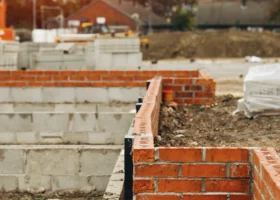






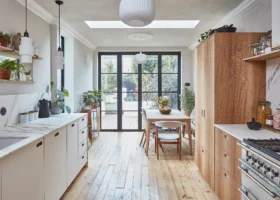
















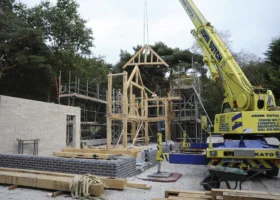
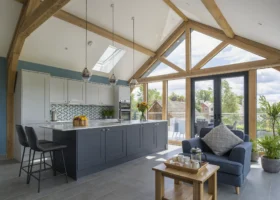

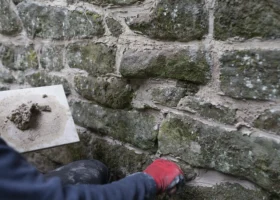



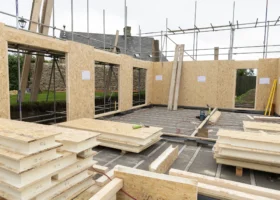























































 Login/register to save Article for later
Login/register to save Article for later




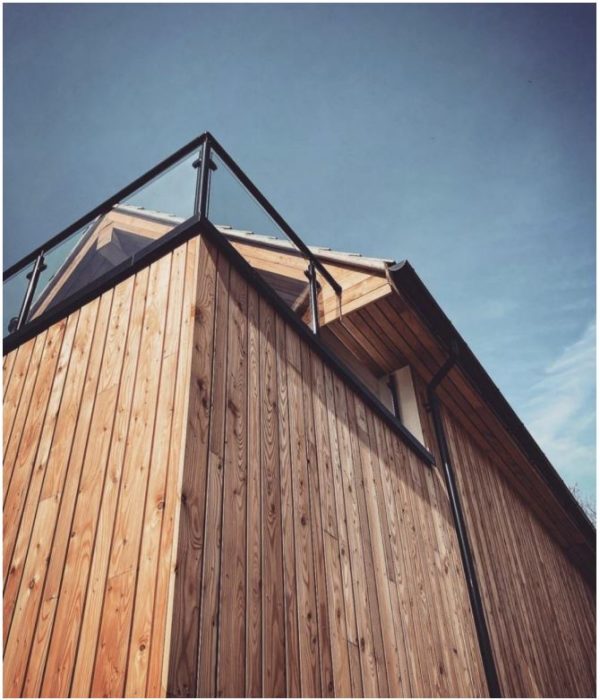







Comments are closed.